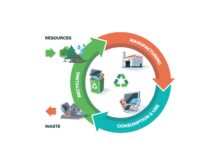As the global population surges and energy demands skyrocket, it has become increasingly critical to shift towards renewable and sustainable energy sources. Renewable energy sources, such as wind, solar, geothermal, hydro, and biomass, offer numerous benefits when compared to non-renewable sources of energy like coal, natural gas, and oil. In this article, we will explore the various benefits of renewable energy sources and their potential to create a sustainable future.
The Environmental Benefits of Renewable Energy Sources
Undoubtedly, the most significant benefit of renewable energy sources is their potential to reduce carbon emissions and combat climate change. Non-renewable sources of energy emit greenhouse gases that contribute to global warming and climate change. In contrast, renewable energy sources emit little to no greenhouse gases, making them an eco-friendly alternative. By embracing renewable energy sources, we can significantly reduce our carbon footprint and ensure a healthier planet for future generations.
Apart from this, renewable energy sources do not require the extraction and transportation of finite resources like coal and oil. The extraction and transportation of these resources often lead to environmental degradation, habitat loss, and pollution. Conversely, renewable energy sources are often located close to the areas where they are needed, reducing the need for long-distance transportation and minimizing their negative environmental impact.
The Economic Benefits of Renewable Energy Sources
Renewable energy sources offer several economic benefits as well. Firstly, they are increasingly becoming cost-competitive compared to non-renewable sources of energy. Over the past decade, the cost of renewable energy technologies such as solar and wind has significantly decreased. This has made renewable energy sources more accessible and affordable to a broader range of consumers.
Secondly, renewable energy sources create jobs and stimulate local economies. The renewable energy industry is becoming a significant source of employment in many countries, with more people working in the production, installation, and maintenance of renewable energy technologies. Additionally, the use of renewable energy sources can reduce energy costs for households and businesses, providing savings and additional resources that can be spent on other priorities.
The Social Benefits of Renewable Energy Sources
Renewable energy sources offer various social benefits. Access to affordable and reliable energy is crucial for improving the quality of life and promoting economic development. Renewable energy sources can provide access to energy in rural and remote areas that are not connected to the traditional power grid. This can improve access to education, healthcare, and other essential services, leading to better living conditions and increased economic opportunities.
Renewable energy sources can also improve energy security and reduce dependence on foreign energy sources. Countries that rely on non-renewable energy sources are vulnerable to supply disruptions, price volatility, and geopolitical risks. The use of renewable energy sources can diversify energy supplies and reduce the risk of energy insecurity, providing greater stability and resilience to energy systems.
The Health Benefits of Renewable Energy Sources
Renewable energy sources offer health benefits by reducing the air and water pollution associated with non-renewable energy sources. Fossil fuels like coal and oil release pollutants that can harm human health and the environment. These pollutants can cause respiratory problems, cardiovascular disease, and cancer. Renewable energy sources, on the other hand, do not emit harmful pollutants, reducing the health risks associated with energy production and consumption.
Moreover, renewable energy sources can reduce the risk of energy-related accidents, such as oil spills, mine collapses, and explosions. These accidents can cause significant harm to human health and the environment. The use of renewable energy sources can help prevent these accidents, reducing the health risks associated with non-renewable energy sources.
Conclusion
Renewable energy sources offer numerous benefits over non-renewable sources of energy. They are environmentally friendly, cost-competitive, create jobs, and stimulate local economies, and offer social and health benefits. With the world population continuing to grow and the demand for energy increasing, it is essential to shift towards sustainable and renewable energy sources to ensure a brighter future for ourselves and generations to come. By embracing renewable energy sources, we can combat climate change, reduce pollution, create jobs, and stimulate local economies while promoting energy security and enhancing our overall quality of life.
Google News | Telegram
















